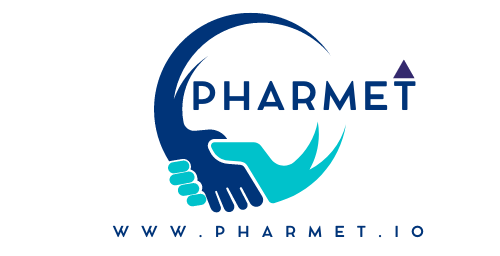No products in the cart.
Green Pharma: Where Sustainability Powers the Future of Global Medicine
As the world demands faster access to life-saving medicines, the pharmaceutical industry faces a tough question can we grow without harming the planet?
At Pharmet Global, our answer is a confident yes.
We believe that sustainability and scalability are not opposites they’re partners. The future of pharmaceutical manufacturing lies in what we call Green Pharma: an approach that balances global demand with environmental responsibility.
🌍 ESG Is Now a Non-Negotiable in Global Pharma
In today’s world, Environmental, Social, and Governance (ESG) standards are not just checkboxes they are a sign of credibility and ethics. And for pharmaceutical exporters, these principles are especially critical.
Why ESG matters:
- Environmental: Managing emissions, reducing waste, and avoiding water pollution are essential, especially when exporting to countries that value eco-compliance.
- Social: Fair labor, ethical sourcing, and health-conscious work environments matter deeply to humanitarian buyers and government agencies.
- Governance: Transparency in documentation, regulatory compliance, and ethical operations are now baseline expectations especially in the wake of rising scrutiny on global pharma exports.
💡 At Pharmet Global, we see ESG as our foundation not just our responsibility. For buyers and partners across Africa, South Asia, and Latin America, this is our shared code of trust.
💊 Eco-Friendly APIs: A Better Way to Build Medicines
APIs (Active Pharmaceutical Ingredients) are the core of any medicine but traditional API manufacturing often involves toxic chemicals and huge energy consumption.
The solution? Eco-friendly APIs made using green chemistry.
What makes APIs “green”?
- Biocatalysis – uses natural enzymes instead of harmful chemical catalysts.
- Supercritical CO₂ – replaces hazardous solvents with safer alternatives.
- Microwave synthesis – energy-efficient methods that reduce toxic waste.
Examples in action:
- Atorvastatin (cholesterol medicine) is now produced using safer reagents.
- Ibuprofen production has moved from a complex, pollutive process to a simpler, cleaner one.
- Metformin (diabetes medicine) is now manufactured using water-based processes.
✅ The result? Lower emissions, cleaner water, and easier regulatory approvals especially helpful for global buyers focused on ethical procurement.

💧 Water Management: Smart, Sustainable, Essential
Water is one of the most used resources in pharmaceutical production and one of the most wasted. For years, manufacturing plants have discharged untreated water or used wasteful single-pass systems.
That model is no longer acceptable especially when exporting to environmentally conscious regions.
What’s improving:
- Closed-loop systems: Reuse water internally without discharge.
- Zero Liquid Discharge (ZLD): Not a luxury anymore but a necessity.
- Rainwater harvesting & modular wastewater systems: Designed right from the planning stage.
Old methods like lagoon-based treatment or unregulated discharge are being replaced with green infrastructure that protects local ecosystems and strengthens export credibility.
💡 Sustainable water planning doesn’t just protect the environment it reduces cost, improves efficiency, and speeds up global approvals.
📦 Packaging: The Overlooked Climate Offender
It’s easy to ignore packaging. But in pharma, the outer box can create a massive carbon footprint especially during long-haul exports.
Why packaging matters:
- It contributes to 30% or more of a pharma product’s total environmental impact.
- Bulky designs lead to higher freight costs, especially for cold chain products.
- Waste disposal becomes a challenge in underdeveloped regions.
The Green Shift:
- Recyclable & Bioplastic blister packs reduce toxic landfill waste.
- Flat-pack cartons save 40% space essential for field logistics and humanitarian operations.
- QR-code based digital leaflets save paper and improve accessibility.
✅ Smarter packaging doesn’t just cut waste it improves efficiency, reduces cost, and builds brand trust.
❓ Frequently Asked Questions
- What makes an API eco-friendly?
It’s manufactured using non-toxic processes, green solvents, and less wasteful techniques without compromising quality.
- Is eco-friendly packaging more expensive?
Slightly, at first. But the long-term savings in freight, storage, and regulatory approval outweigh the initial cost.
- Can ESG-compliant plants scale production easily?
Absolutely. In fact, ESG-compliant plants are more efficient, audit-ready, and globally accepted making them ideal for exports.
- Why should NGOs or governments prefer green pharma products?
Because they offer reliability, lower risk, and align with ethical public health goals especially in sensitive regions.
- How does Pharmet Global ensure green sourcing?
We encourage dossier-ready, ESG-aligned manufacturers using green APIs, water-smart systems, and low-emission packaging so you can import confidently and responsibly. Of course the final choice belongs to you.
🌱 Pharmet Global’s Commitment
At Pharmet Global, we understand one simple truth:
🌍 You can’t deliver health by damaging the planet.
That’s why our sourcing, partnerships, and product offerings are built around Green Pharma principles.
✅ We promote eco-friendly APIs
✅ We encourage working with plants that have ZLD (Zero Liquid Discharge) and closed-loop systems
✅ We strongly effort our exports come with smart, responsible packaging
✅ And above all we stay aligned with your goals of compliance, care, and climate action
For us, sustainability is not a tagline it’s our way forward.
Let’s grow responsibly. Let’s export ethically.
Let’s build a healthier world together.
Stay Healthy, Stay Blessed!





Leave a Reply